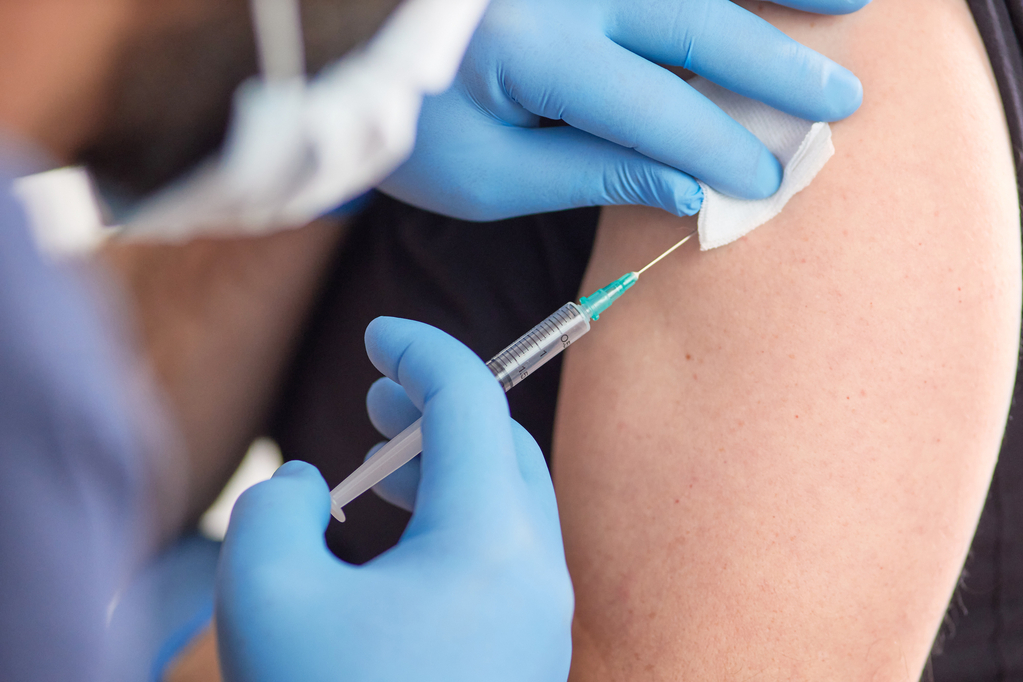Researchers at Tel Aviv University, Israel, equipped ca 5,000 persons with smartwatches and monitored their physiological parameters over two years to assess the safety of the vaccination against the Corona virus.
In addition, the researchers analyzed the medical files of a sample of 250,000 randomly selected members of the second largest health-care organization in Israel (Maccabi Health Services).
From the analysis of this large amount of data, the researchers were able to confirm the safety of the vaccines from three perspectives: subjectively - what the participants reported, objectively - what the watch detected, and clinically - what the doctor diagnosed.
The study is considered as the first of its kind and was carried out by a research team led by Professor Dan Yamin, Head of the Laboratory for Epidemic Research, in cooperation with Professor Erez Shmueli, Head of the Big Data Laboratory, all from the Fleischman Faculty of Engineering at Tel Aviv University. The results of the research were published in Lancet Respiratory Medicine.
Methodology
"We wanted to test the safety of booster vaccines against the coronavirus,” Professor Yamin explains. “The smartwatches were used to monitor a number of parameters such as heart rate, variation in heart activity, quality of sleep, number of daily steps taken, and more. The participants were also asked to fill in daily questionnaires about their health status in a customized mobile application that we developed.”
“We focused on the second booster, i.e., fourth dose,” he told the Brussels Times. “We also analyzed the data of the first booster for those who received the second booster or those who were eligible to receive the second booster, i.e., individuals with underlying medical conditions and persons above the age of 60.”
The mobile application collected daily self-reported questionnaires on local and systemic reactions. Medical records were accessed to examine the occurrence of 25 potential adverse events, and the risk differences between 42 days in the periods before and after the vaccination were evaluated.
The team also checked the frequency of twenty-five unusual side effects attributed to the vaccine in the sample of 250,000 health care insurance members. They looked specially for rare cases of inflammation of the heart muscle and the pericardium.
Results
"We saw clear and significant changes after the vaccination, such as an increase in heart rate compared to the pulse rate measured before vaccination," he says, "and then we saw a return to the participant’s baseline, i.e., the pulse levels after vaccination returned to their previous levels after six days. Hence, our study confirms the safety of the vaccine.”
According to Professor Yamin, the results are applicable for the monovalent mRNA vaccine (primary series, first booster, and second booster) for the eligible population. “We cannot say for certain that they are applicable for the bivalent Pfizer booster dose or any of the Moderna vaccines. As data become available, we will expand our analyses.”
"The medical files told us about unusual events diagnosed by the doctors as well as hospitalizations that may be related to vaccinations, with an emphasis on cardiac events. We did a comprehensive analysis of all those twenty-five unusual side effects, and didn’t see an increase in their incidence among those receiving the booster. We found the vaccine to be safe to use.”
“Our participants mainly reported mild symptoms including influenza-like illness symptoms,” Professor Yamin added.
The duration of the immunity as a result of the booster doses last was not part of the study but recent studies suggest that booster vaccines are effective in reducing severe outcomes for more than 9 months, including against omicron.
Do you recommend people to take a fifth dose (third booster dose)?
“Covid-19 continues to be a major concern in older individuals and those with underlying medical conditions,” he replied. “The marginal benefit of booster vaccines is lower compared to the primary series or the benefit gained from previous infections. On the basis of what we know, individuals from these groups who have not been infected recently should get the fifth vaccine dose.”
Do you foresee that we'll have to take corona virus vaccines annually as we do with flu vaccines?
“Unfortunately, yes, but only for older persons.”
The research team believes that their study provides safety assurances to the global population which is eligible to receive an additional COVID-19 booster inoculation. The findings are based on physicians' diagnoses, patients' objective physiological measures, and patients' subjective reactions. Despite the positive results, Professor Yamin is not sure that they will convince anti-vaxxers.
“I think that as scientists we need to be honest without any agenda whatsoever. If we had found that vaccines were associated with severe adverse events, we would of course have published it. Unfortunately, there are not enough research papers to determine the safety of vaccines. But transparency always helps to reduce vaccine hesitancy.”
M. Apelblat
The Brussels Times

